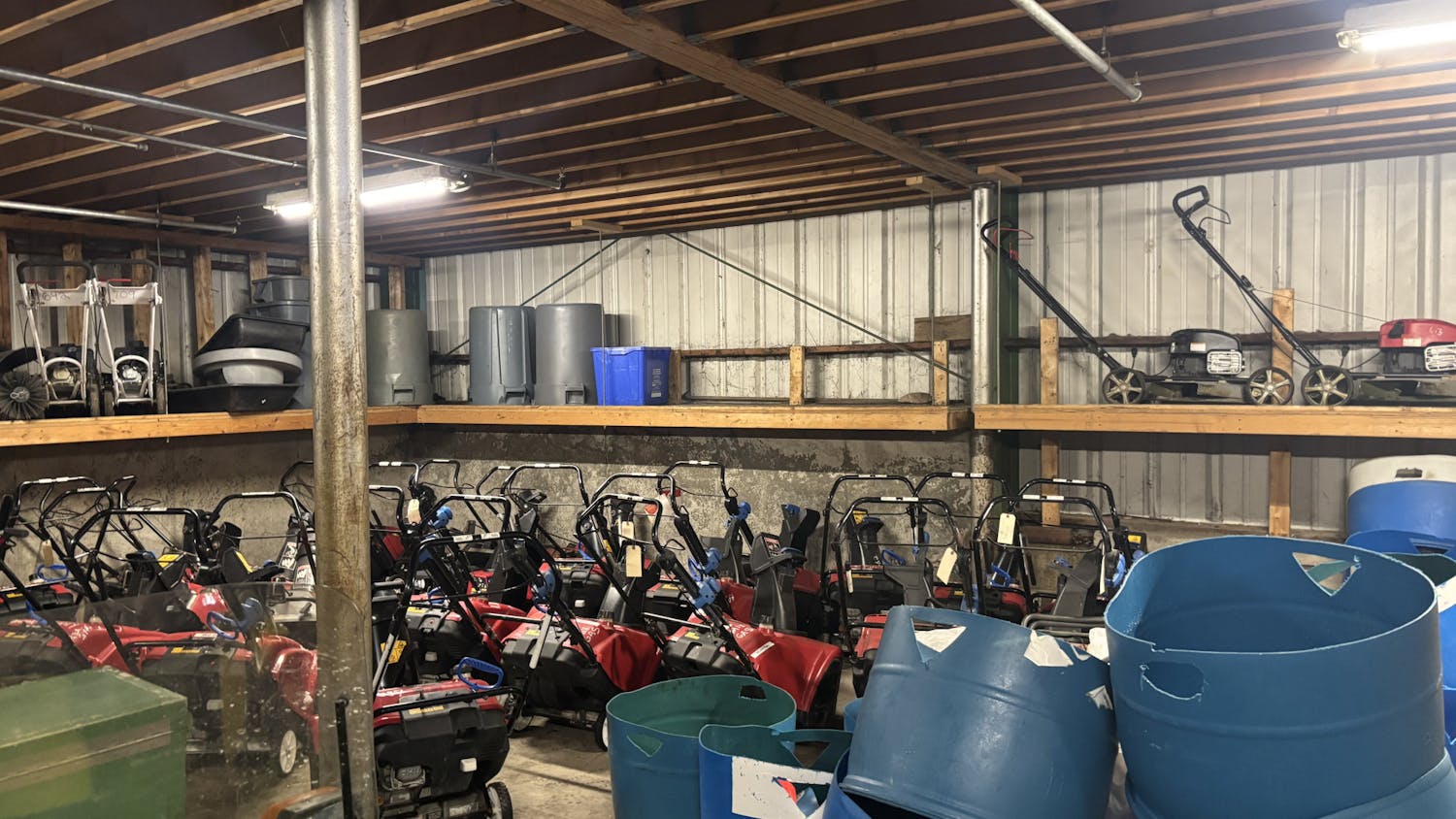Author: Dan Polifka
A final project for a biology class evolved into a large-scale effort to raise awareness on the lack of handicapped accessibility at Middlebury College.
Participants in the most visible aspect of the project, the Wheelchair for a Day activity, were hard to miss as they navigated the campus in wheelchairs and bright blue shirts reading "Midd Accessibility: It's An Uphill Battle." This was a major goal of the weeklong event, explained Chris Richards '04, a member of the class: "As far as accomplishments, I feel we got our message across and were, at the very least, seen throughout the week. It is somewhat difficult to miss 20 wheelchairs floating around campus."
The event was the first annual Accessibility Awareness Week, an idea spawned by the community service component of Assistant Professor of Biology David Parfitt's class on neurological disorders. "Some students volunteered time at Project Independence while others spent time with either Jill [Meunier] or Rose [Hotte], two women in Middlebury with multiple sclerosis who are both essentially wheelchair-bound," noted Ryan Kearney '04. "It was actually Rose who came up with the idea for the students in the class to try navigating the campus for a day in a chair."
Once the class decided that this was a worthwhile project, they set out on making it a campus-wide affair, replete with speakers, forums, T-shirts and editorials in both The Middlebury Campus as well as the Addison County Independent to go along with the Wheelchair for a Day program.
While there were events all week, various members of the College community had the opportunity to use wheelchairs from Wednesday Nov. 20 to Friday Nov. 22. On the first day the 17 members of the class, including Parfitt, tried their luck at mastering the campus on wheels, followed by various staff members on Thursday and roughly 40 students on Friday, in two shifts.
The 20 wheelchairs used were partially rented and partially on loan from Yankee Medical in Burlington and the Medicine Chest in Middlebury. However, procuring the wheelchairs accounted for but a small portion of the work, said Kearney. "We spent almost the entire semester getting the details worked out for the week's events," he continued. "People were in charge of everything from obtaining funding from commons and the [Americans with Disabilities Act Office] to contacting companies for the wheelchairs to designing and printing t-shirts and so on. It was a lot of work."
According to class members, a major concern before the project started was how Middlebury students with disabilities would react to students riding around in wheelchairs and then being able to stand up at the end of the day. This fear was allayed after they spoke with Sarah LeFeber '03, a wheelchair user. "It's great that people want to learn about accessibility. The Wheelchair for a Day program is going to be a real eye-opener for people on campus," she commented. "It's important to raise awareness about what we have to go through on a daily basis."
Parfitt summed up the purpose of the week: "Access. It is not just getting a plate at Ross, it's doing what you want when you want." Even the members of the class, who had spent virtually all semester planning the event, found that they were completely unprepared for life in a wheelchair. Participants were not only astonished at how exhausting wheelchair movement is, but at the amount of the campus that is either totally or partially inaccessible in a wheelchair.
Demonstrating an 'Uphill Battle' for Disabled on Campus
Comments



